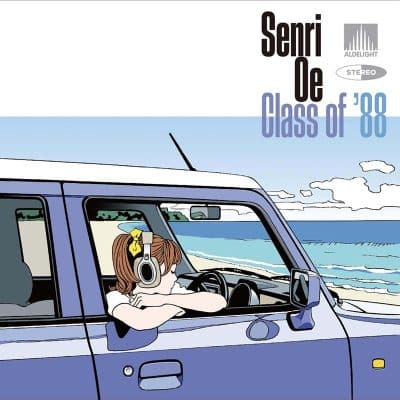Senri Oe Class of ‘88
 Senri Oe
Senri Oe
Class of ‘88
PND/Sony Masterworks
Every so often a story comes along that’s worth sharing, almost aside from the music itself. Contrary to the usual path of a jazz musician crossing into the pop world to achieve commercial success, here we have the former Japanese pop star Senri Oe going in the opposite direction with his jazz trio. While most of us, this writer included, had no idea of the artist’s mega star status in Japan in the ‘80s and ‘90s, suffice it to say it was of the Justin Timberlake, Ed Sheeran, bordering on Taylor Swift level. Yet, Oe abandoned the limousine life and at age 47 moved to NYC, enrolled at the New School for Jazz and Contemporary Music and reinvented himself as a jazz pianist, a rather courageous undertaking considering most of his classmates were in their twenties. Now 62, with seven jazz albums to his credit he has never looked back until now on Class of ’88, his tenth album (including the three pop albums), where he revisits several of his pop hits. Assisting on this retrospective are bassist Matt Clohesy and drummer Ross Pederson.
1988 saw the release of one of Oe’s most successful albums, 1234, which received the Album of the Year prize at Japan’s equivalent to the Grammys. Oe comments also on the parallels in socio-political terms, the end of the cold war then and our current divisive times. This album features three new tunes aside his reimagined tunes, the Mon-influenced ballad “Poetic Justice,” the Brazilian tinged “Lauro De Freitas,” and the nostalgic solo piece “Class Notes.” So, like many pianists, Oe loves Monk’s compositions and Bill Evans’ style of pianism.
In terms of the reimagined songs Oe was determined not to change the original melody or chord progressions but instead changed the meters and polyphonic approach. He claims that his Japanese audience will easily recognize all of them. He opens with “Apollo,” a quiet, mid-tempo tune with original lyrics that offered commentary on present day versus the onset of the space age. On “Bamboo Bamboo” Peterson’s rhythms essentially substitute for the original electronic dance music. “I Wanna Live With You (Kimi to Ikitai) reinvents the original ballad from 1986’s Avec into a Latin styled piece while “My Glory Days” is a solo piano rendering of the big single from 1234.
The trio frolics playfully through “Stella’s Cough,” from the 1987 album Olympic and renders the composition “Time-Bouncing Fish,” the first one the trio ever played together live, in jaunty, joyful fashion. Oe owes the melody for “Cosmopolitan” to George Duke and Hall and Oates, as bassist Clohesy states much of the melody heard in the original lyrics from the tune that appeared on Chibusa (1985). The album closes with a solo performance the title track from Avec, which has lyrics protesting the war in Libya and wars in general. Fittingly, it is much more solemn than the other fare, which is mostly bright and in its own way, sounding like an album of jazz standards, probably even more so for those familiar with the originals. Relative to many other jazz piano trio recordings it may come across as simpler but the beauty lies in the melodies and numerous unusual chord progressions.
- Jim Hynes.
Buy Us a Cup of Coffee!
Join the movement in supporting Making a Scene, the premier independent resource for both emerging musicians and the dedicated fans who champion them.
We showcase this vibrant community that celebrates the raw talent and creative spirit driving the music industry forward. From insightful articles and in-depth interviews to exclusive content and insider tips, Making a Scene empowers artists to thrive and fans to discover their next favorite sound.
Together, let’s amplify the voices of independent musicians and forge unforgettable connections through the power of music
Make a one-time donation
Make a monthly donation
Make a yearly donation
Buy us a cup of Coffee!
Or enter a custom amount
Your contribution is appreciated.
Your contribution is appreciated.
Your contribution is appreciated.
Donate Donate monthly Donate yearlyYou can donate directly through Paypal!
Subscribe to Our Newsletter
Discover more from Making A Scene!
Subscribe to get the latest posts sent to your email.














































